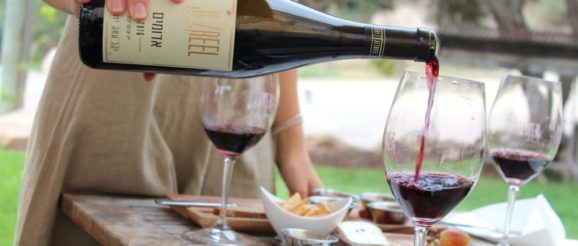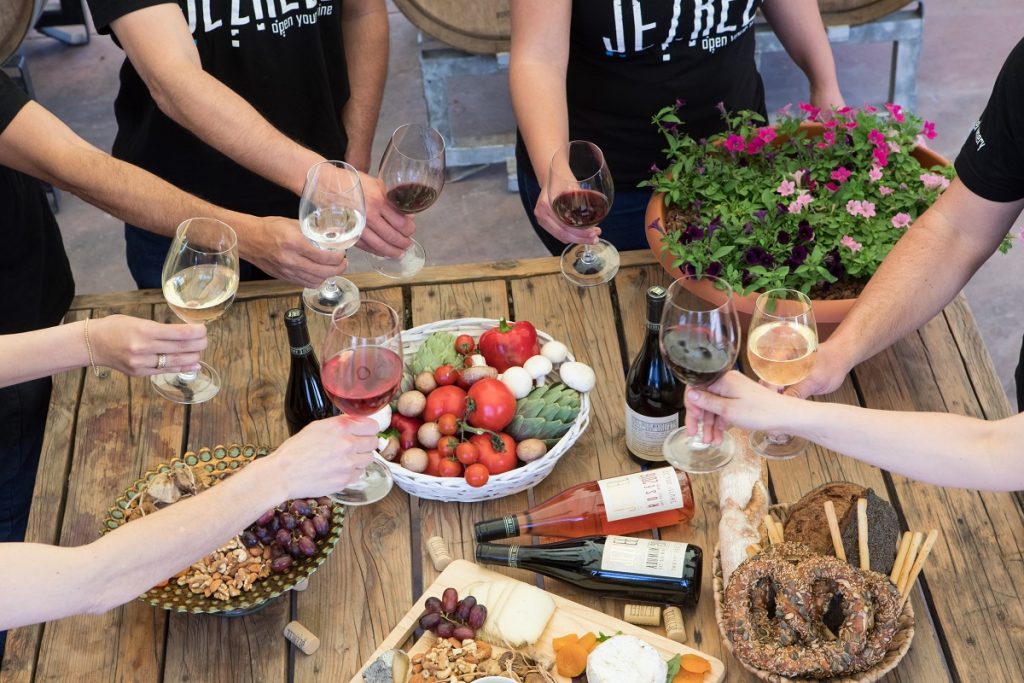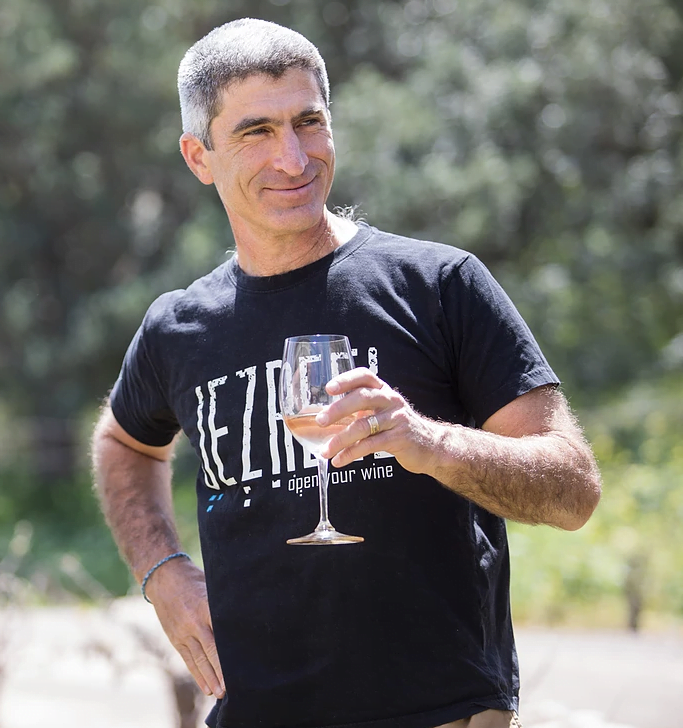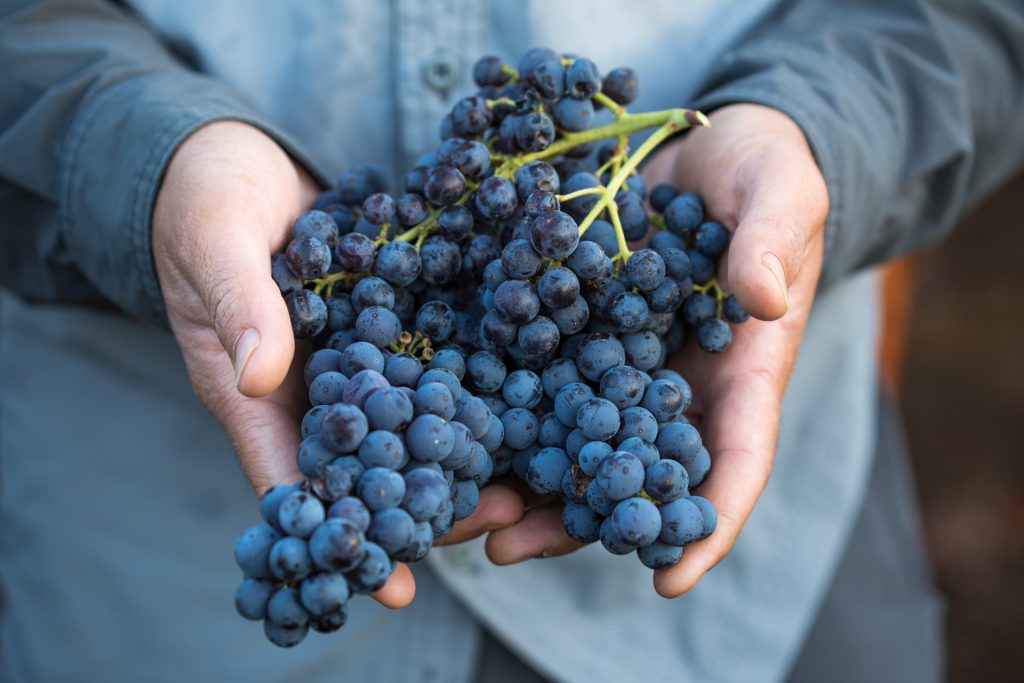Is The World Ready For A Super-Wine? Raise A Glass To Israeli Vino Innovation

It seems the day when we can raise a glass of shiraz or merlot instead of taking vitamin supplements is not so far off. Just look to the north of Israel, to the lab of Dr. Meir Shlisel, an expert in wine chemistry from Tel-Hai College, who spends his days analyzing grape molecules.
Shlisel is working to produce wine with higher levels of resveratrol, a plant compound found in red wine that has recently hit the headlines for its strong health benefits. Resveratrol is the most popular of stilbenes, phytochemicals found in berries, grapes, peanuts, and wine.
SEE ALSO: Drinks Menu: 4 Beverages Serving Up A Splash Of Israeli Ingenuity
Natural health food store shelves are lined with resveratrol powder supplements, thanks to research studies linking this compound — said to have the most effective antioxidant properties– with protecting brain function, slowing the development of cancerous growths, preventing infection, and lowering blood pressure, among other health benefits.

“Today, one glass of wine does not comprise enough resveratrol of the daily recommended dose,” Shlisel tells NoCamels. “One of the goals of my research is to elevate the amount of stilbenes and specifically resveratrol, in grapes, with post-harvest treatment.”
Shlisel’s lab is now developing “Superwine,” what may be the world’s first officially healthy wine.
And the timing for this innovation couldn’t be better. Israel’s wine scene is garnering admirers around the globe – and not only those interested in kosher wines.
“We’re finally being taken seriously as a wine-growing region. For 30-40 years, the Israeli boutique wine renaissance has been happening and people around the world have gotten familiar with Israeli wine,” Jacob Ner David, a winemaker and entrepreneur, tells NoCamels. “Israeli wines are now being found on wine menus, and nothing to do with the fact that they’re kosher.”
“There are new and exciting wine places throughout the world that deserve attention, and certainly Israel is one of these places,” Erika Frey, a Boston-based certified sommelier and wine educator, told the Lowell Sun.
Earlier this year, the Israel Export Institute, in partnership with the Ministry of Agriculture, the Ministry of Economy and Industry, and the Wines & Grapes Board, launched its first-ever Wines of Israel campaign to educate the US wine trade and the general public about the quality of Israeli wine.

Ner David, who is also CEO of Vinsent, is hoping his startup — a digital wine shop and e-commerce exchange – will help get Israeli wines to more customers as well.
“Innovation in how wine is distributed, how people experience wine,” he says of his mission.
“In Israel, wine has been distributed more or less the same way since the times of the Roman Empire, with a lot of middle people, brokers, the need to ship it as a physical good. If you look at the global wine industry, a $350 billion industry, it has been virtually untouched by the e-commerce revolution of the past 20+ years,” says Ner David.
Launched earlier this year, the Vinsent app (still in pilot mode) sells wines from Italy, France, Spain, the US, and Israel. But it is not just a discounted online wine-seller, Vinsent connects people to the wineries themselves. “People want to know where things come from, where they were made. They want a connection,” he says.
And people are increasingly learning about Israel’s winemakers. Earlier this month, VinePair named Israel as one of 2019’s top ten wine travel destinations. The article highlighted this country’s winemakers, technology, and its renewed focus on native grapes.
The focus on the grapes – and the technology– is where scientists Shlisel and his research student Ron Schweitzer are standouts. The pair are on a course to make wine – scientifically — healthier.
“Wine is considered to be very healthy,” Shlisel tells NoCamels in a telephone interview. “Many research studies show the alcohol and antioxidant contents [are the reasons this is so].”

Just as pomegranate, seaweed and garlic all hold superstar superfood status because of their nutrient-rich antioxidants and vitamin properties, now, Shlisel’s research will enable scientists to develop healthy wine as a superfood.
And it makes sense that in a country known for its cross-disciplinary expertise, superwine – wine as a superfood – would spark from Israel.
Shlisel and Schweitzer’s Superwine took part in XLR8, a technology business accelerator venture between the Ministry of Economy and Industry and the Kiryat Shmona municipality. The program helps entrepreneurs who have an early stage venture in developing the project, giving guidance and exposure with investors.
Schweitzer, a student in the Food Science department at Tel-Hai College, conducted the initial experiments of exposing grapes to ozone gas in Shlisel’s laboratory. The research showed an increase in the level of resveratrol in grapes exposed to ozone gas as opposed to grapes not treated after harvest.
“The ozone gas puts oxidation pressure on the tissue of the grapes which respond with increased production of stilbenes,” says Shlisel.
Their lab results led to a Chief Scientist of the Ministry of Agriculture research grant, as well as a partnership with the Galilee Mountain Winery, an investment by the Industrial Cooperation Authority at the Ministry of Economy and Industry, and a collaboration with the Beit El engineering company which manufactures ozone chambers.
Thanks to the introduction to the world of innovation, the two Israeli scientists are now hoping to prove that their research can produce a healthy red wine. They’re using strains of grapes used to produce merlot, shiraz and cabernet sauvignon.
“The first year of research focused on analyzing the grapes. This year, we decided to make wine from the grapes to see if this ozone treatment affects the wine,” Shlisel says.
SEE ALSO: Reinventing Zionism With Wine and Vines
They found that the post-harvest treatment increased the production of stilbenes by up to five-fold and also boosted health properties of another group of molecules.
And that’s not all.
Shlisel’s research shows that ozone treatment “is not just for grapes.”
He tells NoCamels that “other fruits may be treated with this process so we can elevate the antioxidant levels in them, too.”
The near-future goal, however, is wine. “I hope that people will soon be able to enjoy one glass of Superwine and get all the health benefits,” he says.
“It’s more fun to drink wine that take vitamin pills.”
Viva Sarah Press is a journalist and speaker. She writes and talks about the creativity and innovation taking place in Israel and beyond.
